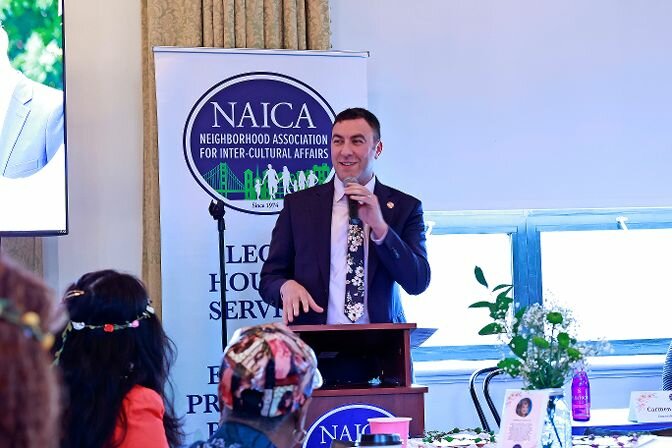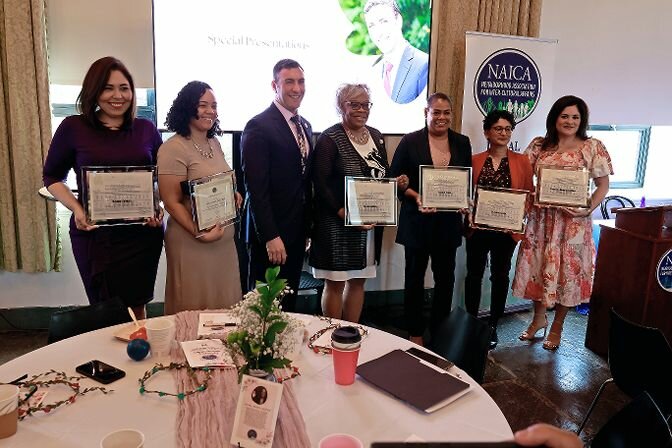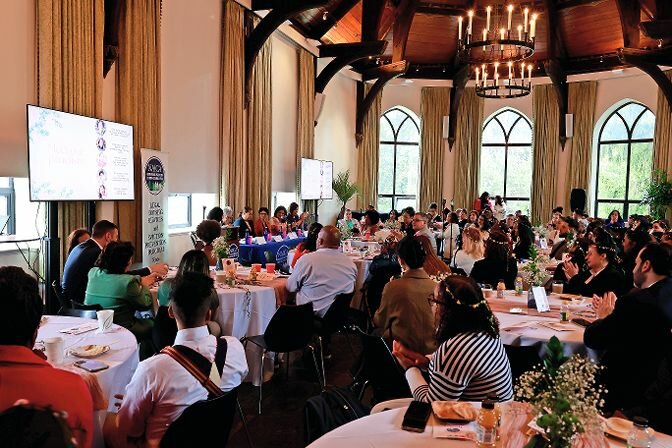Wave Hill tips its hat to five top women
Women’s History Month may now be over but the often thankless feats and challenges of being a woman in male dominated spaces are yearlong. Some of those nuanced perspectives and hardships were shared at the Wave Hill Garden last week for a “Women’s HerStory Month Celebration.”
Five female community leaders were honored in an event moderated by Councilwoman Carmen De La Rosa and sponsored by Councilman Eric Dinowitz in partnership with the Neighborhood Association for Inter-Cultural Affairs.
The full list of honorees included New York Supreme Court judge Kim Wilson; NAICA chief financial officer Shameeka Gonzalez-Gamboa, New York City human rights commissioner Annabel Palma, Montefiore Hospital neo-natal specialist Dr. Susan Latuga; and Citizens Bank senior vice president Dayana Falquez.
“NAICA serves the most vulnerable individuals and families experiencing housing insecurity,” Chief Executive Officer Elvira Barone said in a statement. “We held this Women’s history month panel discussion to highlight serious issues impacting our women and celebrate the achievements and contributions of our clients, staff and trailblazing women in our local Bronx communities.”
Conversation at the event ranged from overcoming barriers in the workforce, dealing with mom guilt, and recountimg some of the best pieces of advice from mentors.
“In politics, one time I had to take a very hard vote and I was very torn up,” Women’s Caucus co-chair De La Rosa said. “And I had a mentor who said to me, ‘you know your values, your values are the things that make your stomach (have) butterflies. When you’re crossing to a place where you’re about to betray your values, those things that make your butterflies come up are the things you have to be true to. Everything else is a negotiation.’ And that advice set me free.”
Wilson’s best advice came to her when she started working as an investigative attorney in 1989 at the Department of Investigation. There was a time she wanted to cry but was in a room full of men. Instead, she went to the office of the late O.T. Wells, a practicing attorney from Harlem.
“I was crying and he said, ‘Kim, let me tell you something,’” Wilson said. “He said, ‘as an attorney you cannot cry.’ And I learned from that day on I couldn’t cry. You can’t cry as a woman at your work place in the courtroom, you can’t do it … These are the lessons you have to learn. The little things you have to know.”
Another piece of advice was given by Falquez, who explained women don’t pat themselves on the back enough. An example she used was pride at having cleaned the pantry, refrigerator, and bathroom for her family and husband. She challenged audience members to think about what they’ve achieved, whether it’s at home or work.
“We show the outcome, never the process,” Falquez said. “We always bring the finished product, but you never hear us talking what it took to get there, and I think … we should be able to tell the story. This is what I’m working on, this is the process to get you there.”
Dr. Latuga told The Riverdale Press men can advocate for women in their careers and life by listening to them and allowing them to make decisions.
“I think listening to what their partners and friends want and need and allowing them to make those decisions is crucial,” Latuga said. “I think that ability to support and advocate for what somebody else wants is very important.”
Dinowitz, the prime sponsor of the event, echoed the sentiment.
“The women in the council bring their experiences as a woman, as growing up a woman and in many cases being mothers or grandmothers. Our speaker’s the first grandmother who’s the speaker of a city council,” he said.
Richard Arroyo, chief operating officer of Naica, shared an example of how he advocated for women at a then male dominated organization. He was called into a meeting with three other men in which the conversation was picking between two candidates for the role of program director. One was male while the other was female.
“I strongly advocated for the woman, not because she was a woman but because she was the better candidate,” he said.
Today Naica has more than 600 employees, and about 90 percent of leadership at the organization is women, according to Arroyo.
The New York City Council also has, for the first time in history, a woman majority. This is something De La Rosa said helped when it came to dealing with mom guilt with her nine-year-old daughter.
“She said to me one time, ‘Mom, do you know that so-and-so’s mother doesn’t have a campaign office?’ And for me that helped me deal with my mom guilt,” De La Rosa said. “Because I’m saying ‘you know what? We’re creating a world where my daughter finds it weird that her friend’s mother doesn’t have a campaign office.’ Imagine the limits that were raised when she thinks everybody’s mother should have a campaign office.”











